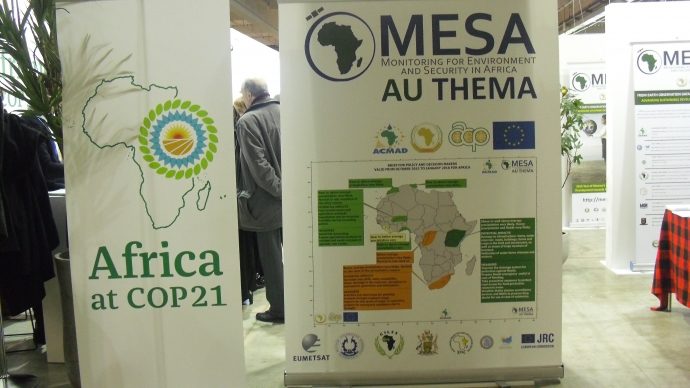Libreville, 19 June 2017 (UNEP): Investment in innovative environmental solutions is essential to Africa's development, the continent's environment ministers concluded on Friday, at the African Ministerial Conference on the Environment in Libreville, Gabon.
The ministers issued the Libreville Declaration, in which they committed to re-invest a larger proportion of revenue into improving Africa's natural capital, including land and soils, forests, fisheries, water and biomass fuels, on which the continent's development depends.
“We need to aim high: at building communities that are resilient and well-prepared to cope with climate change, and at building smart, innovative and inclusive economies driven by low-carbon growth,” said Erik Solheim, head of UN Environment.
“African nations have every potential to leapfrog the rest of the world and take on global leadership in key sectors. They can prove that maintaining a stunning natural environment can go hand-in-hand with strong development.”
“It is in the interest of Africa–it is in the interest of humanity as a whole–that environmental issues are given the attention they deserve,” said Estelle Ondo, Gabon's Minister of Forest Economy, Fisheries and Environment, and President of the Conference.
“Therefore, it is not only an opportunity but an obligation, that we–the Ministers in charge of the environment take responsibility for ensuring that the necessary means are provided to translate AMCEN’s mandate into action and visible results on the ground.”
Four decisions
In a set of four decisions, Africa's environment ministers tackled the continent's major environmental issues, such as climate change, healthy oceans, pollution, land degradation and drought, illegal trade in wildlife and renewable energy.
The ministers acknowledged that progress towards the universal Sustainable Development Goals and towards Africa's Agenda 2063 has been uneven across the continent. They pledged to speed-up efforts to achieve the goals of both ambitious projects in all African countries.
African governments said they were determined to cooperate on key environmental issues, including:
- Pollution: Environment ministers agreed to improve the management of chemicals and waste, and pledged to boost the control of land, air, freshwater, marine and other forms of pollution. Reducing healthcare costs resulting from pollution would generate significant savings for the continent's sustainable development. Pollution will be the theme of the upcoming UN Environment Assembly – the world's highest-level decision-making body on the environment
- Circular Economy/ Green Economy/ Blue Economy: African ministers agreed to promote circular economy, green economy, blue economy and industrial symbiosis strategies in their countries, and to upscale and replicate the circular economy and green business development policies and programmes to enable the growth of sustainable entrepreneurship as a key driver of Africa’s economic transformation agenda.
- Desertification, land degradation and drought: Governments committed to strengthen sustainable land management, particularly to address land tenure issues, and the empowerment of women and youth. The ministers agreed to speak with one voice at the 13th Conference of Parties to the UN Convention to Combat Desertification, especially on regional issues, such as enhancing drought resilience and the proposed land degradation neutrality fund.
- Wildlife – management and wildlife trade: Ministers called for the strengthening of institutions in Africa to effectively address the issues of poaching and illegal trade in wildlife. They called for a comprehensive study on sustainable management of wildlife on the continent, including the status and trends of key species and habitats.
- Clean and sustainable energy: Ministers decided to boost the production and use of clean energy, such as wind and solar, to drive the continent's development. They committed to empowering women to engage in clean energy development and access, and to improve their entrepreneurial skills and access to finance and markets.
- Climate change: African governments regretted the decision of the US – the largest emitter of greenhouse gases – to withdraw from the Paris Agreement on climate change and urged the country to reconsider its decision. African ministers reaffirmed the commitment of their countries to the historical Paris Agreement and to its implementation, ensuring parity between mitigation and adaptation, as well as adequate, predictable and sustainable support for African countries – recognizing their special circumstances and needs- to enhance their efforts to combat climate change.
- Kigali Amendment to phase out potent greenhouse gases: African Ministers agreed to accelerate the ratification process of the Kigali amendment to the Montreal Protocol. They also agreed to support affordable, safe and efficient cooling technologies that will maximize the climate benefits of the Kigali Amendment.















